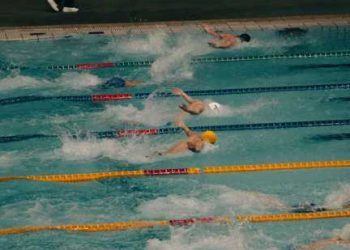Nutrition plays a crucial role in the overall performance and success of athletes. It not only fuels their bodies but also helps in accelerating recovery and reducing the risk of injuries. The impact of proper nutrition on athletic performance is undeniable, as it directly affects an athlete’s energy levels, endurance, strength, and overall well-being.
To understand the significance of nutrition in athletic performance, one must first recognize the importance of macronutrients. Carbohydrates, proteins, and fats serve as the building blocks of a well-rounded diet for athletes. Carbohydrates are the primary source of energy, providing the necessary fuel for intense workouts and competitions. A diet rich in whole grains, fruits, and vegetables ensures a steady supply of carbohydrates, enabling athletes to perform at their peak.
Proteins are essential for muscle repair, growth, and maintenance. They play a crucial role in the recovery process after intense physical exertion. Lean meats, dairy products, eggs, and legumes are excellent sources of protein and should be included in an athlete’s diet plan. Fats, often misunderstood, are essential for various bodily functions. Unsaturated fats, found in foods like avocados, nuts, and olive oil, help in reducing inflammation and enhancing joint health.
In addition to macronutrients, athletes should pay close attention to their micronutrient intake. Vitamins and minerals play a vital role in maintaining optimal health and preventing nutrient deficiencies that may hinder athletic performance. For example, iron deficiency can result in reduced oxygen-carrying capacity, leading to fatigue and decreased endurance. Therefore, a diet rich in fruits, vegetables, and lean meats should be promoted to ensure an adequate intake of essential vitamins and minerals.
Hydration is another critical aspect that directly impacts an athlete’s performance. Dehydration can lead to decreased coordination, impaired cognitive function, and reduced endurance. Athletes must consume an adequate amount of fluid before, during, and after physical activity to optimize their performance and prevent dehydration-related complications.
Moreover, the timing and composition of meals can significantly influence athletic performance. Pre-workout meals should be rich in carbohydrates, easily digestible, and consumed a few hours before exercise. This allows the body to obtain energy from the meal while avoiding any discomfort during intense workouts. Post-workout nutrition, on the other hand, should focus on replenishing glycogen stores and promoting muscle recovery. A combination of carbohydrates and protein within an hour after exercise is believed to be the most effective in aiding muscle repair and growth.
In conclusion, the impact of nutrition on athletic performance cannot be overstated. A well-balanced diet that includes the right combination of macronutrients and micronutrients, proper hydration, and strategic meal timing can enhance an athlete’s energy levels, endurance, strength, and recovery. Investing in proper nutrition not only leads to improved athletic performance but also reduces the risk of injuries, ensuring a successful and sustainable career. Therefore, athletes and their coaches must prioritize nutrition to unleash their full potential in sports and achieve their desired goals.













